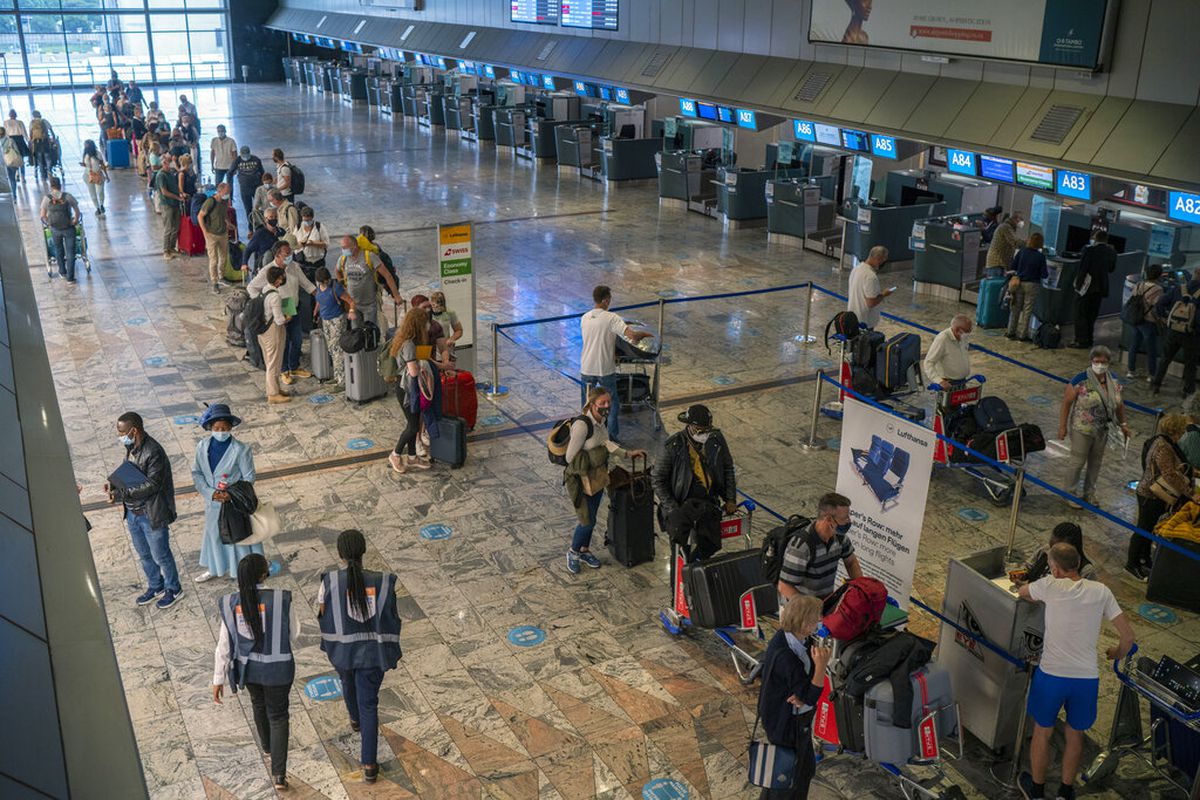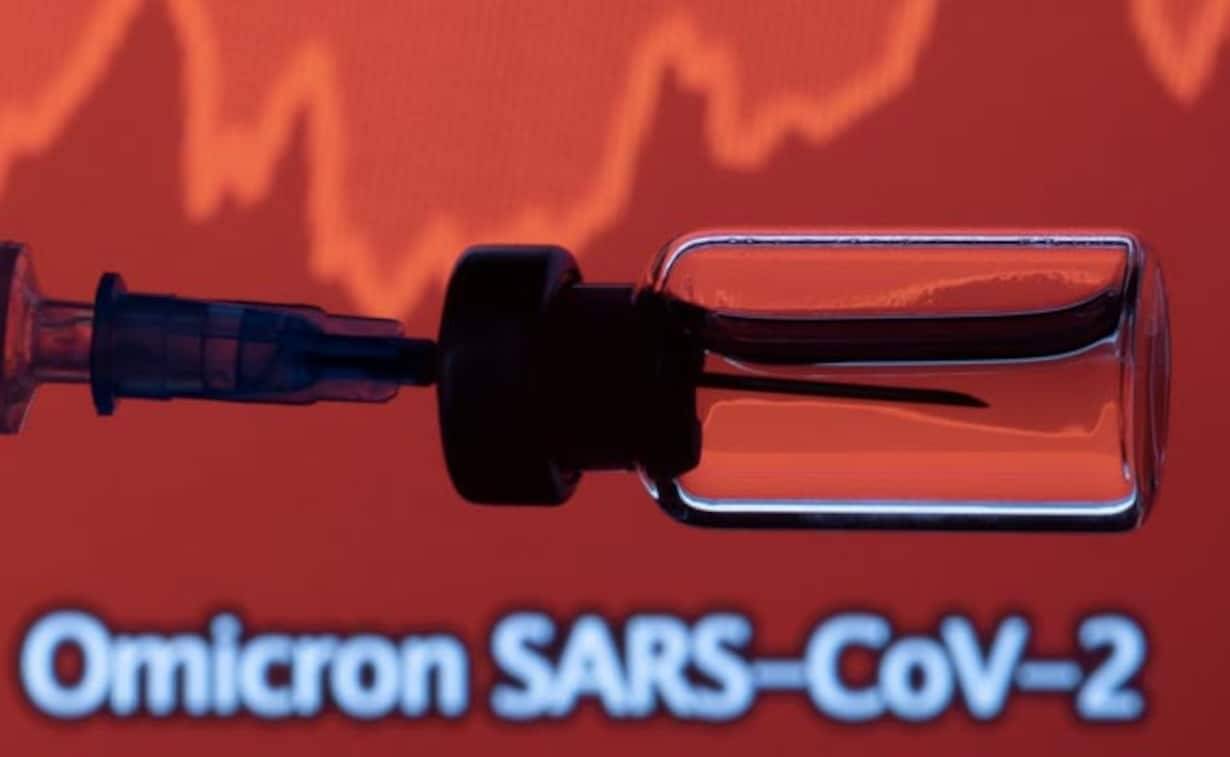What do we know so far?
It was initially believed that the B1.1.529 variant of COVID-19, now known as the Omicron variant, was first detected on November 26, 2021 in South Africa. However, it has since been reported that the variant was actually first registered among guests of a private event in Scotland on November 20. In fact, Scottish First Minister Nicolas Sturgeon said in Parliament on Tuesday that none of the individuals who tested positive for the variant had travelled in recent days or have any known links to others who recently travelled to or from South Africa.
It was declared as a separate variant by the World Health Organisation (WHO) after a study by the Technical Advisory Group on Virus Evolution (TAG-VE) concluded that it has several mutations that could change its behaviour.
According to a WHO update, there is no information currently available to suggest that the variant is more transmissible than the previous variants, including the Delta variant. While South Africa has seen a rise in cases in regions affected by Omicron, it is yet to be determined whether the rise can be attributed to the variant.
Moreover, there is no clarity yet whether Omicron causes more severe symptoms. The rise in the number of hospitalisations in South Africa has been attributed to an overall increase in cases. Furthermore, the WHO has said that understanding the severity of the variant can only be judged in the coming weeks.
Nevertheless, the WHO update said preliminary data suggests that exposure to Omicron may increase the risk of reinfection among those who have previously tested positive for COVID-19. It further asserted that vaccines remain critical to combat the threat posed by this variant, just as with previous mutations of the variant. The WHO also clarified that there would be no impact on PCR tests and the current treatments being used.
Consequently, the WHO recommended that countries should adopt measures such as: “enhancing surveillance and sequencing of cases; sharing genome sequences on publicly available databases, such as GISAID; reporting initial cases or clusters to WHO; performing field investigations and laboratory assessments to understand better if Omicron has different transmission or disease characteristics, or impacts the effectiveness of vaccines, therapeutics, diagnostics or public health and social measures.”
It also suggested an approach based on risk analysis and science and preparing medical facilities and capacities. The WHO further recommended ramping up COVID-19 vaccine coverage to bridge the increasing gap caused by inequities across the globe.
Which countries have detected it so far?
The variant has been confirmed in at least 26 other countries across continents, including India (2), Israel (2), Hong Kong (7), the Netherlands (7), the United Kingdom (32), Germany (10), Canada (7), the US (1), Saudi Arabia (1), United Arab Emirates (1), and Ghana (33).
On Tuesday, two cases were reported in Latin America in Brazil. Japan also reported its first case on the same day.

What travel restrictions have been put in place to curb the spread?
The WHO recommended that countries adopt an evidence-informed and risk-based approach while balancing out the nature of travel restrictions they intend to impose. It suggested regulating and monitoring the countries of departure, transit, and arrival, along with deploying facilities to screen travellers. However, the global health organisation advised against imposing blanket bans, which could impact the livelihood of the people affected and disincentivise countries from conducting regular screening and quarantining passengers.
Against this advice, at least 56 countries have already imposed complete travel bans. For instance, China has restricted travel for all inbound passengers except nationals and permanent residency holders. Similarly, Israel, Japan, and Morocco have also restricted entry to non-citizens.
At the same time, countries like Angola, Australia, Brazil, Cambodia, Canada, Egypt, France, Germany, Indonesia, Italy, Kuwait, Malaysia, Maldives, Malta, New Zealand, Oman, Pakistan, Philippines, Russia, Rwanda, Saudi Arabia, Singapore, Sri Lanka, Thailand, Turkey, United Arab Emirates, United Kingdom, and the United States have adopted partial bans. These countries have restricted passengers from southern African countries such as Eswatini, Lesotho, Namibia, South Africa, and Zimbabwe.
How have international leaders responded?
South African President Cyril Ramaphosa has criticised the decision made by several countries to impose travel bans against his country and other southern African nations, calling them “unjustified and unfairly discriminate.” He asserted that restrictions have been imposed without any scientific basis and that South Africa is being punished for sounding the alarm.
He said, “The only thing the prohibition on travel will do is to further damage the economies of the affected countries and undermine their ability to respond to, and recover from, the pandemic.” Ramaphosa also requested countries to reverse the bans to prevent permanent damage to South Africa’s economy.
Ramaphosa’s remarks appear to be somewhat justified in light of new reports that the variant was first recorded in Europe, illustrating the haste with which countries sought to single out South African and other souther African countries.
Despite the South African president’s requests, however, several countries continue to restrict travellers from his country. Commenting on the restrictions, American President Joe Biden said a decision to ease the rules could only be made on information about the lethality, transmissions, and severity of the symptoms caused by the variant.
Likewise, Indian Prime Minister Narendra Modi said that despite the success of the vaccine drive, the variant is a cause for concern and urged citizens to be vigilant. Speaking during the winter session of the Parliament, he said, “I also request all members of Parliament and you also to be alert because everyone’s health is our priority in this hour of crisis.” He also conducted a meeting to review the preparedness of the health industry on Saturday, which saw the participation of cabinet secretary Rajiv Gauba, health secretary Rajesh Bhushan, and Niti Aayog Member (Health) VK Paul.
The bans have severely impacted South Africa’s already struggling tourism industry. According to Al Jazeera, the ongoing pandemic has cost the industry $10 billion in booking fees, with an additional $10 million lost each week due to the cancellation of flights.
This story has been updated with new information, after it emerged that the Omicron variant was first detected in Europe, well before countries issued travel bans against southern African countries.

